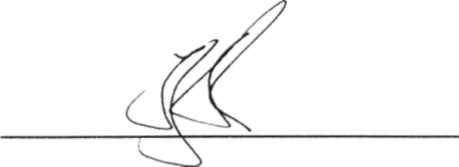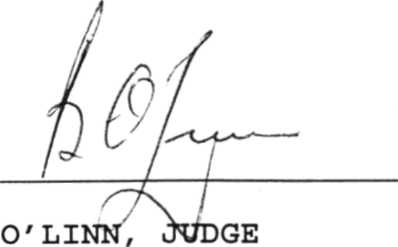A 269/95 BETTINA BINGEL vs MRS SALIONGA & 1 OTHER O'Linn J; Frank, J 1995/11/29 Criminal Law - Maintenance - failure to comply with a maintenance order contrary to sec. 11(1) of Act 23/1965 - When trial converted into enquiry - Should not be done where no defence to period mentioned in indictment - Financial position of accused at trial not necessary relevant to period mentioned in indictment - Decision by magistrate to convert trial into enquiry in terms of sec. 23 of Act 23/1965 set aside - accused convicted and matter referred back for the imposition of a sentence.
CASE NO: A269/95 IN THE HIGH COURT OF NAMIBIA In the matter between BETTINA BINGEL APPLICANT versus MRS SALIONGA CRIMINAL MAGISTRATE OF WINDHOEK FIRST RESPONDENT ACHIM BINGEL SECOND RESPONDENT CORAM: O'LINN, J. et FRANK, J. Heard on: 1995.11.20 Delivered on: 1995.11.29 JUDGMENT FRANK, J. : The applicant was the complainant in the of failing to comply with a maintenance order in contravention of section 11(1) of the Maintenance Act, No. 23 of 1963 (the Act) . The first respondent is the At the trial the prosecution led its evidence whereafter the accused also gave evidence. After the accused gave his evidence a postponement was sought to call a further defence witness which postponement was refused. Hereafter the defence case was declared closed by the presiding magistrate. The court a quo was then addressed by the representatives of both parties with regard to conviction.
Magistrate's Court where the second respondent was accused
magistrate who presided at this prosecution.

Subsequent to these addresses the magistrate decided that "Proceedings converted into enquiry in terms of section 23 of Act 23 of 1963." It is this decision of the magistrate to convert the criminal proceedings to an enquiry which the applicant seeks to review and set aside maintaining that the second respondent should have been convicted of the offence he was charged with. Although second respondent filed a notice of opposition to the review he took no further steps to oppose it. First respondent indicated that she would abide by the decision of this Court. She did not furnish any reasons for her decision to convert the prosecution into an enquiry. In a letter filed by her lawyers reference are made to cases in support of the proposition that prosecutions such as the present one can be converted into an enquiry at any stage prior to sentencing. At the trial the second respondent's legal representative informed the court that a defence would be raised pursuant to the provisions of section 11(3) of the Act, i.e. that First respondent's "failure to pay was due to lack of means." Section 11(3) of the Act creates a defence to section 11(1) of the Act. Section 11(3) provides that proof of lack of means which was not due to unwillingness to work or misconduct on the part of an accused is a defence to a charge under section 11(1) . It is important to note that it is not only a lack of means per se which creates the
defence. This lack of means must not have been caused by the accused's misconduct or failure to work. Sections 5 and 13 of the Act provides for a criminal trial to be converted into an enquiry so that a new maintenance order can be issued where this is desirable. Thus as appears from the headnote in S v Cloete 1977(4) SA 90 (C): "In terms of section 13 of the Maintenance Act, 23 of 1963, it is the duty of the trial magistrate to convert criminal proceedings under section 11(1) for an alleged failure to comply with a maintenance order into an enquiry in terms of section 5 of that Act if it appears to the magistrate that such enquiry is desirable e.g., by reason of the excessively high maintenance payments imposed on an accused in terms of an existing maintenance order, having regard to the accused's income, assets and obligations towards all his dependants at the time of the hearing of the criminal case. This duty of the magistrate mero motu to devote his attention to the desirability or otherwise, of the criminal case being converted, and to act accordingly, exists independently of the right of the accused himself to apply in terms of section 5(4) for the substitution of an existing maintenance order. The trial magistrate himself is obliged to act if he finds it desirable, even though the accused takes no steps in this connection." The desirability of converting a prosecution into an enquiry where it is clear that the accused is unable to comply with an existing maintenance order is self evident as "failure by an accused to apply for a reduction could result in him being repeatedly tried on an unamended order and repeatedly acquitted of inability to pay; which serves no purpose and wastes the resources of the State" (S v Munro, 1986(2) SA 19 (C) at 21 H). With the above background I now turn to the facts in the
present matter. Following an enquiry an order was made in terms of which the second respondent had to pay maintenance in the amount of N$l 400 a month. This order was made on 3 0 June 1994. This order formed the basis of the prosecution under consideration where the second respondent was charged with failing to comply with this order for the period July 1994 to November 1994. At the trial the fact of this order was common cause as well as the fact that the second respondent failed to comply with it. It was further common cause that only N$l 600 of the N$5 600 that was due in terms of the order over the period mentioned in the indictment was paid, i.e. second respondent was in arrears to the tune of N$4 000. As stated earlier the lawyer acting on behalf of second respondent informed the court that the defence would be one of inability to pay based on section 11(3) of the Act. As also already mentioned inability to pay does not in itself constitute a defence as this inability must not be caused by the accused's own misconduct or unwillingness to work. In my view the second respondent not only did not show that he was unable to comply with the order he also did not show that such inability was not due to unwillingness to work or his misconduct. No appeal was lodged against the order of 3 0 June 19 94 and there is no evidence whatsoever as to how his circumstances altered since that order. According to him he lives with his parents for free and they support him on the basis that it will eventually be deducted from his inheritance. They even let a fiat and this rental is then donated to his fiancee so as to maintain them, i.e. his
fiancee and himself. He earns N$2 000 a month from a business of which he is a shareholder. He also handed in a financial statement of a business styled Max and Moritz (Proprietary) Ltd to indicate he earns nothing else except the N$2 000 per month and donations from his parents. According to the auditors who drafted the financial statement of Max and Moritz an unqualified statement could not be given as the company mainly operated on a cash basis and "there were no satisfactory auditing procedures to obtain reasonable assurance that all cash sales were properly recorded." It also appears from the financial statements that second respondent's loan account was reduced by approximately N$15 000 from May 1993 to May 1994. This account is not reflected in the income statement which is probably one of the reasons for the qualified report by the auditors. Furthermore despite his relatively small income second respondent stated that he spent about N$3 00 and N$500 per month respectively on smoking and drinking. If this is added to the N$350 he paid monthly as maintenance it nearly adds up to the amount stipulated in the maintenance order. On his own version if he pays N$l 400 maintenance per month he will have N$600 per month to spend on himself as his parents and fiancee takes care of him in other respects. Whatever the second respondent's position presently may be he did not show that for the period mentioned in the indictment he was unable to pay pursuant to the requirements set out in section 11(3) . His evidence as to his financial position subsequent to that period was strictly speaking not relevant to the issue at the trial. I cannot see why an
accused who has no defence for the period relating to the indictment should escape a conviction because of a possible defence to a future charge relating to a period subsequent to the one mentioned in the indictment by a conversion of the trial into an enquiry. The second respondent did not have a defence to the charge he faced and he should have been convicted. To hold otherwise would mean that an accused can only be convicted where he was not able to comply with a maintenance order for the periods charged and also at the time of the trial. If the second respondent cannot at present comply with the maintenance order he can seek to have it reduced or establish a defence in terms of section 11(3) of the Act in future proceedings against him. As the magistrate chose not to furnish this Court with any reasons for her decision to convert the criminal proceedings into an enquiry I cannot come to any other conclusion than that she did not exercise her discretion judicially when she so converted the proceedings. Had the second respondent been convicted he would have been entitled to place evidence before court in mitigation and he would also have been entitled to address the court on this aspect. What this evidence, if any, would have been does not, for obvious reasons, appear from the record and this Court is thus not in a position to decide what an appropriate sentence would have been. In the result: (a) The decision by the magistrate to convert the criminal
proceedings to an enquiry is set aside; (b) The accused is convicted as charged but only in an amount of N$4 000; and (c) The matter is referred back to the magistrate to decide upon the imposition of a proper sentence for the second respondent. FRANK, JUDGE I agree

